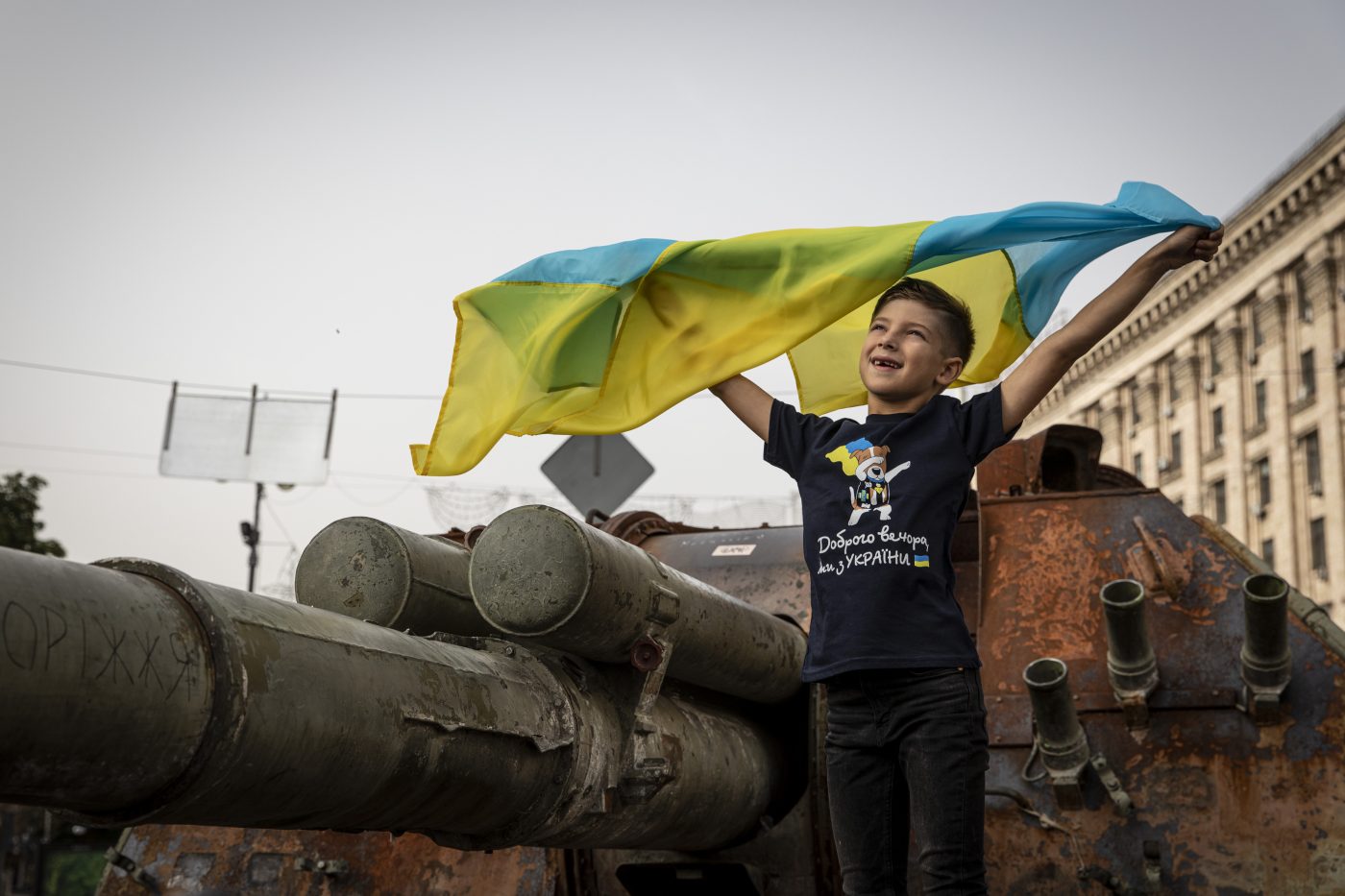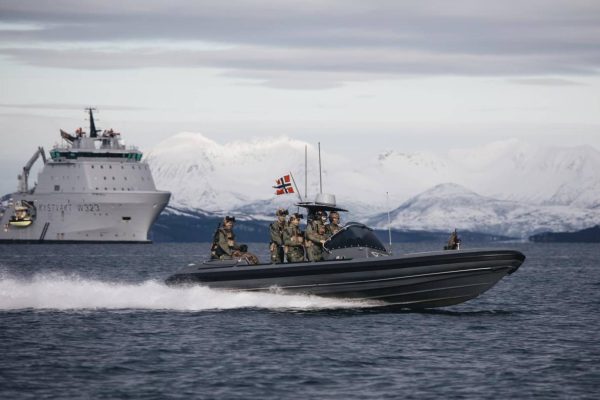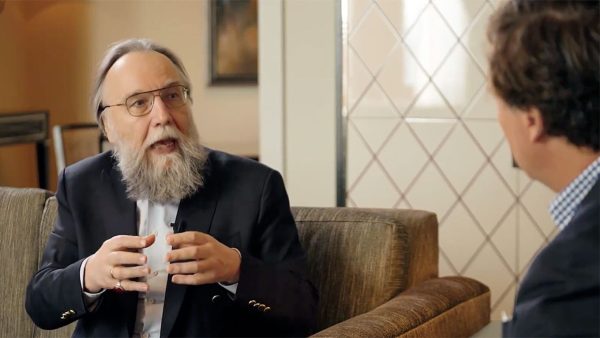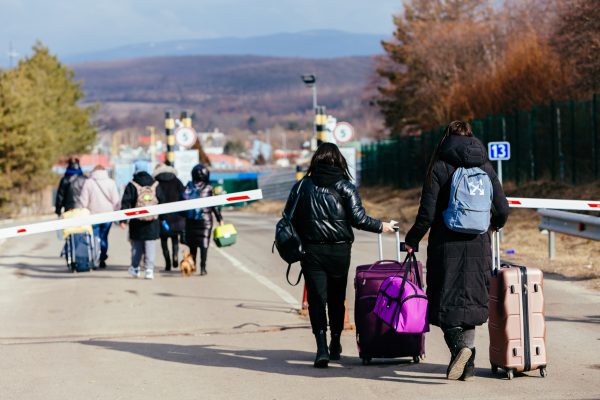In such tortured places, there are few reasons to smile. But how about a giant dinosaur offering his tail for kids to run around and jump on?
Oleksandr Medvedenko is a photographer from the constantly bombed Black Sea port city of Odesa. He used to take pictures of events and celebrations, including images of family and children. “I still take pictures,” he says. “But shooting now is different. And the people have changed.”
Oleksandr, whose wife and eight-year-old daughter have remained in Odesa with him throughout the past two years of war, started volunteering from the first weeks of the full-scale invasion. Together with his colleagues, he spent days on the railway station, trying to help children being evacuated from the war zones.
Almost every day they organized little parties with entertainers and gifts. “We were hoping to distract children at least a tiny bit, to make them smile. My daughter also sorted all her toys and asked me to give a lot to the kids who’d lost theirs . . . and were losing their homes too,” he says.
In spring 2022 when Mykolaiv lost its water supply following Russian attacks, Odesans daily transported water to their neighboring city. And seven months later, when Kherson was liberated, they switched the effort there. Because the situation was even worse than it had been in Mykolaiv.
They brought water and also other humanitarian aid. But noticed that fewer volunteers were paying attention to the smaller towns and villages near the city. So they started visiting the region.
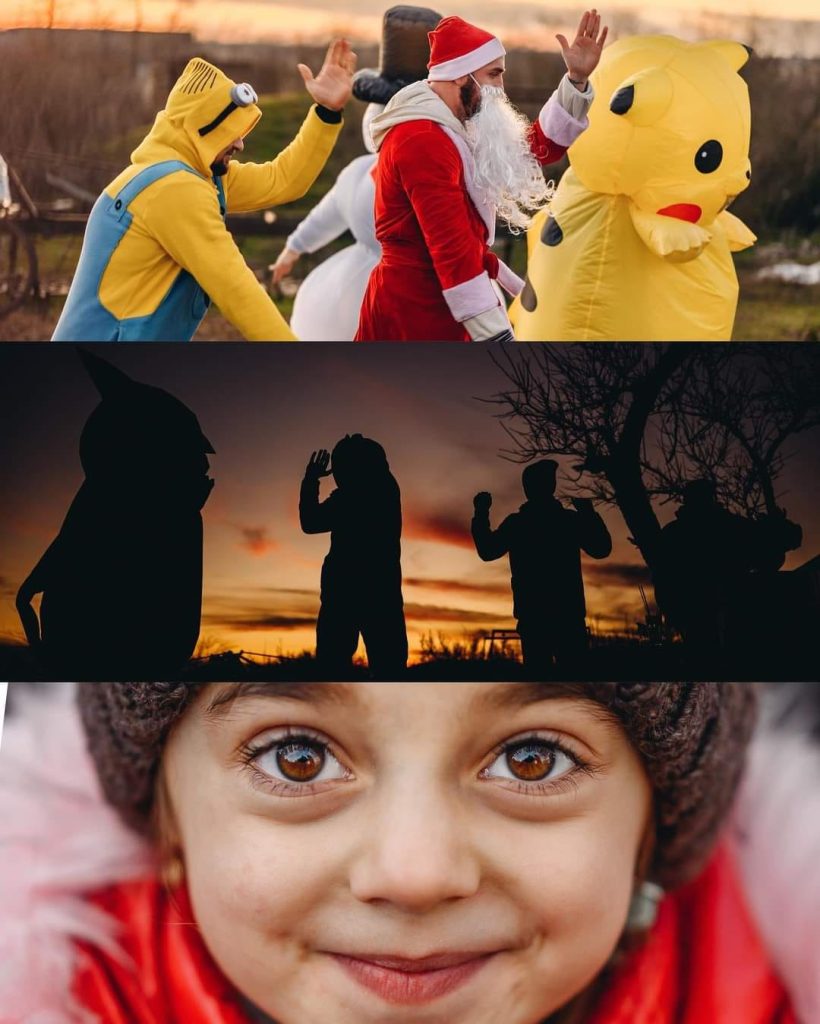
“That’s when our friends from the events industry gave us an inflatable dinosaur suit, and we decided to make a trip for the children. We found contacts in some villages near Kherson, got in touch, asked how many children currently lived there and, having prepared gifts, went to them.”
The photographer says the results were immediate: “After these trips, we received such a charge of positivity from these children that we decided to continue this work . . . Especially since no one visited the children at that time,” Medvedenko explains.
Now there are four people in his team, and a few more who occasionally help, entertain the kids and assist with transportation. So far, they have made about 60 trips and visited children in 99 liberated villages in the Kherson region.
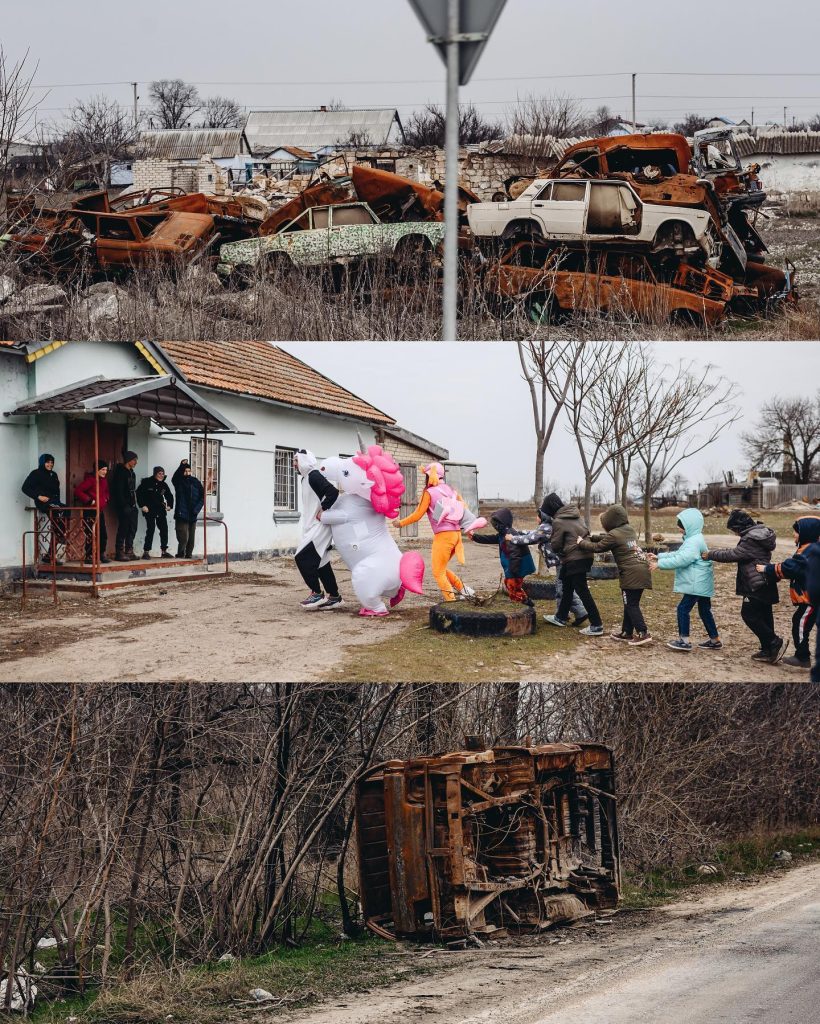
They always bring children a bag of candy, a large dinosaur egg with all kinds of creative things and toys enclosed, and scrapbooks, paints, and pencils. “When we arrive, we organize a small party for the children, for about 20-30 minutes, and then we give away gifts.
“Now, of course, it has become much more difficult to raise funds. But we don’t give up, we are constantly inventing something. Sometimes we can agree to work on a booked event in Odessa not for a fee, but for a donation for children. Sometimes clients ask, for example, to donate toys for children instead of flowers, sometimes they simply collect funds for our trips at their events. We hold raffles, sometimes for souvenirs, sometimes for our services.”
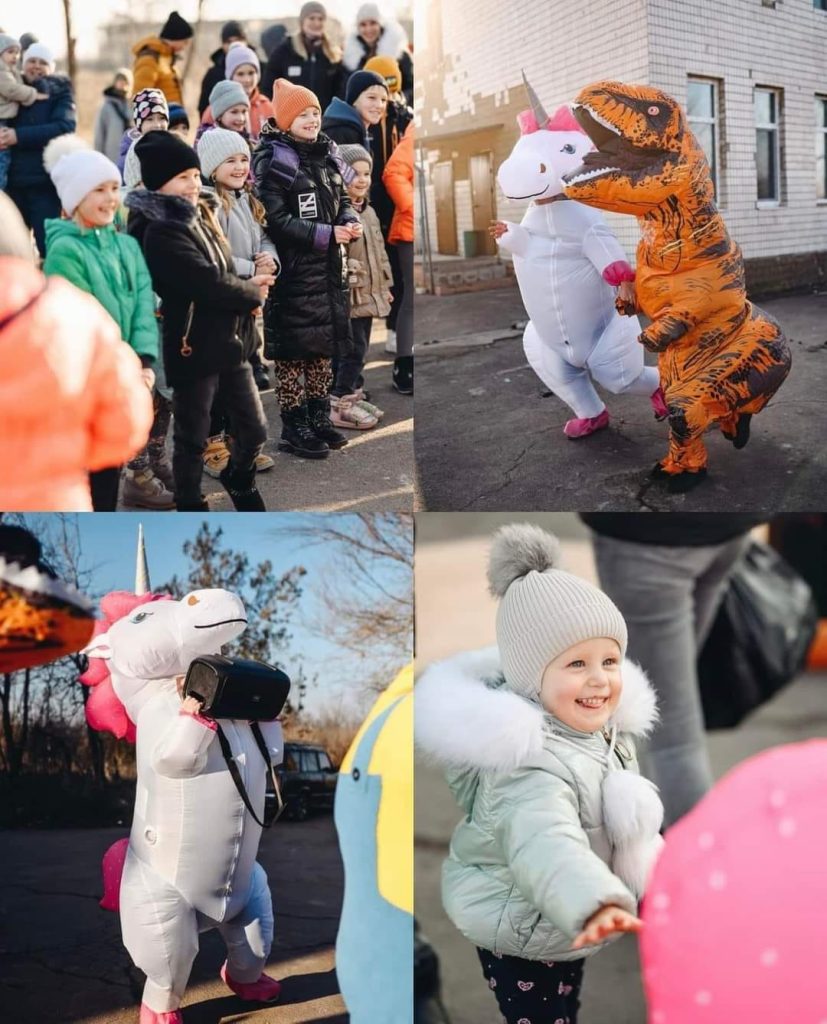
Families and children always ask to come again, even without the gifts. “A lot of people told us that they’re hearing live music for the first time since the full-scale war began”, he says. “Sometimes people already know about us, and they understand what to expect.
“Sometimes they just come to receive humanitarian aid with children and are extremely surprised to see a two-meter-high (6ft 7 inch) cartoon hero instead of a normal volunteer.
“The kids are different. Some are more open. Some have been through many horrors . . . All the stories are different. All the stories are sad, too”.

He doesn’t like to repeat those; they’re a reminder of the bloodshed and tragedy of war for a team that finds it “hard to combine” with the job of spreading happiness.
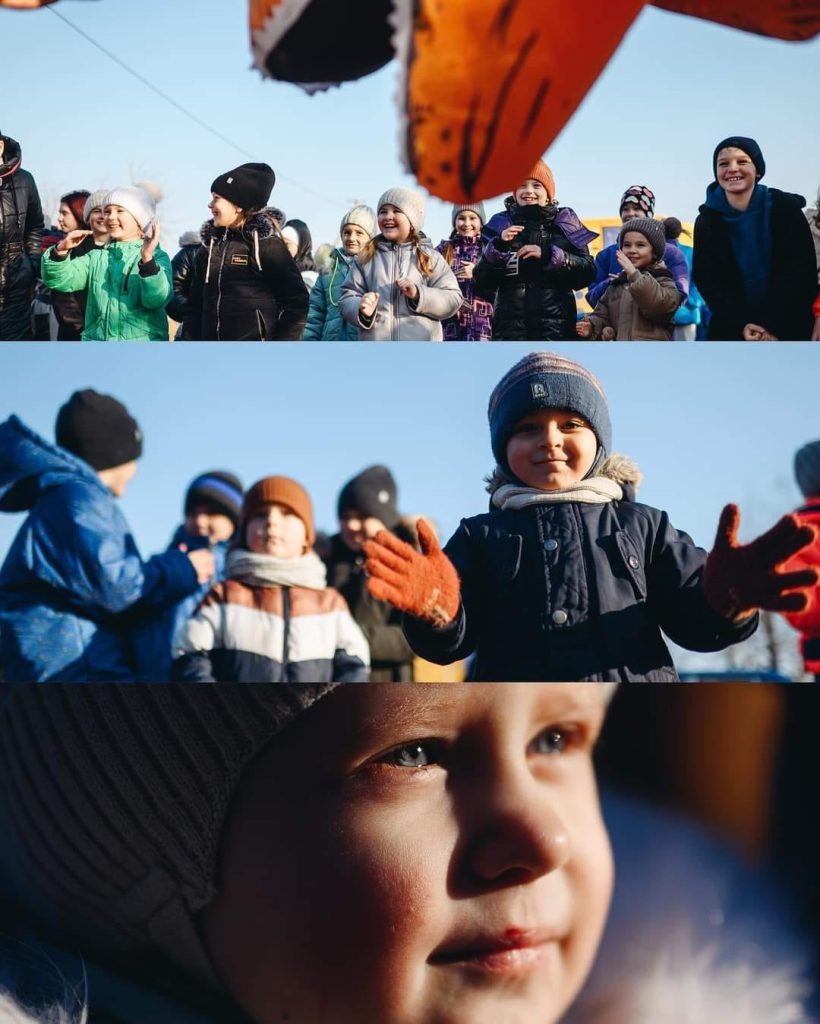
But he’s ready to talk about laughter and the mishaps of life in the entertainment business. “Kids often try to step on the dinosaur’s tail while he can’t see”, Medvedenko laughs. “We’ve had several costumes torn.
“Our dinosaur once had to tie his tail in a knot just to keep it attached, ” he says. And then remembers the dog that decided to tear off the dinosaur’s tail. And laughs again.
To keep going, Oleksandr Medvedenko and his team need donations. https://www.instagram.com/medvedenko_aleksandr
Valeriia “Lera” Burlakova is a journalist and former soldier from Ukraine. She served in combat from 2014-2017 after joining the Ukrainian army following the Russian invasion of Crimea. Her war diary ‘Life P.S.’ received the UN Women in Arts award in 2021. She has worked as a journalist in Ukraine since 2008.
Europe’s Edge is CEPA’s online journal covering critical topics on the foreign policy docket across Europe and North America. All opinions are those of the author and do not necessarily represent the position or views of the institutions they represent or the Center for European Policy Analysis.

